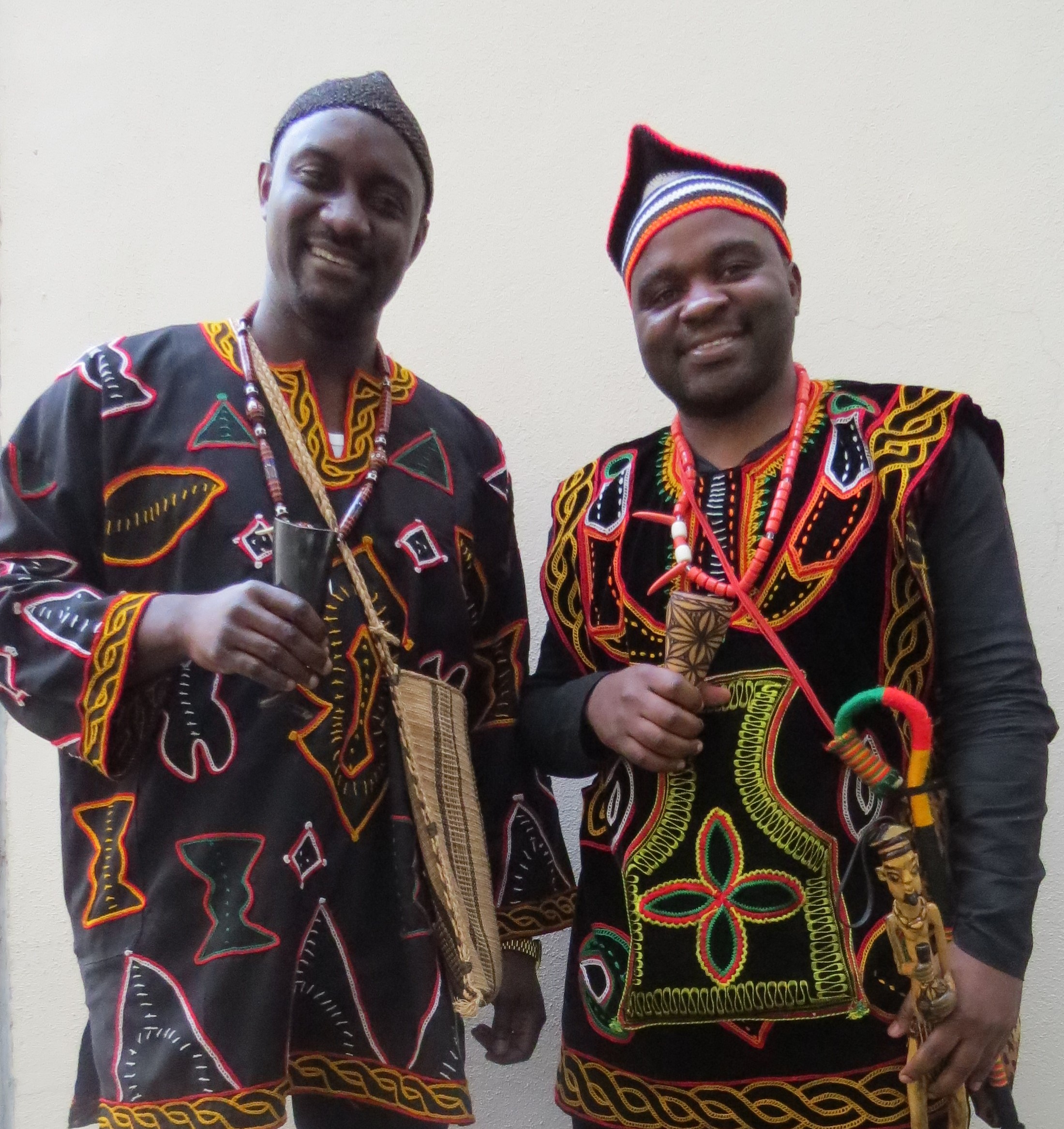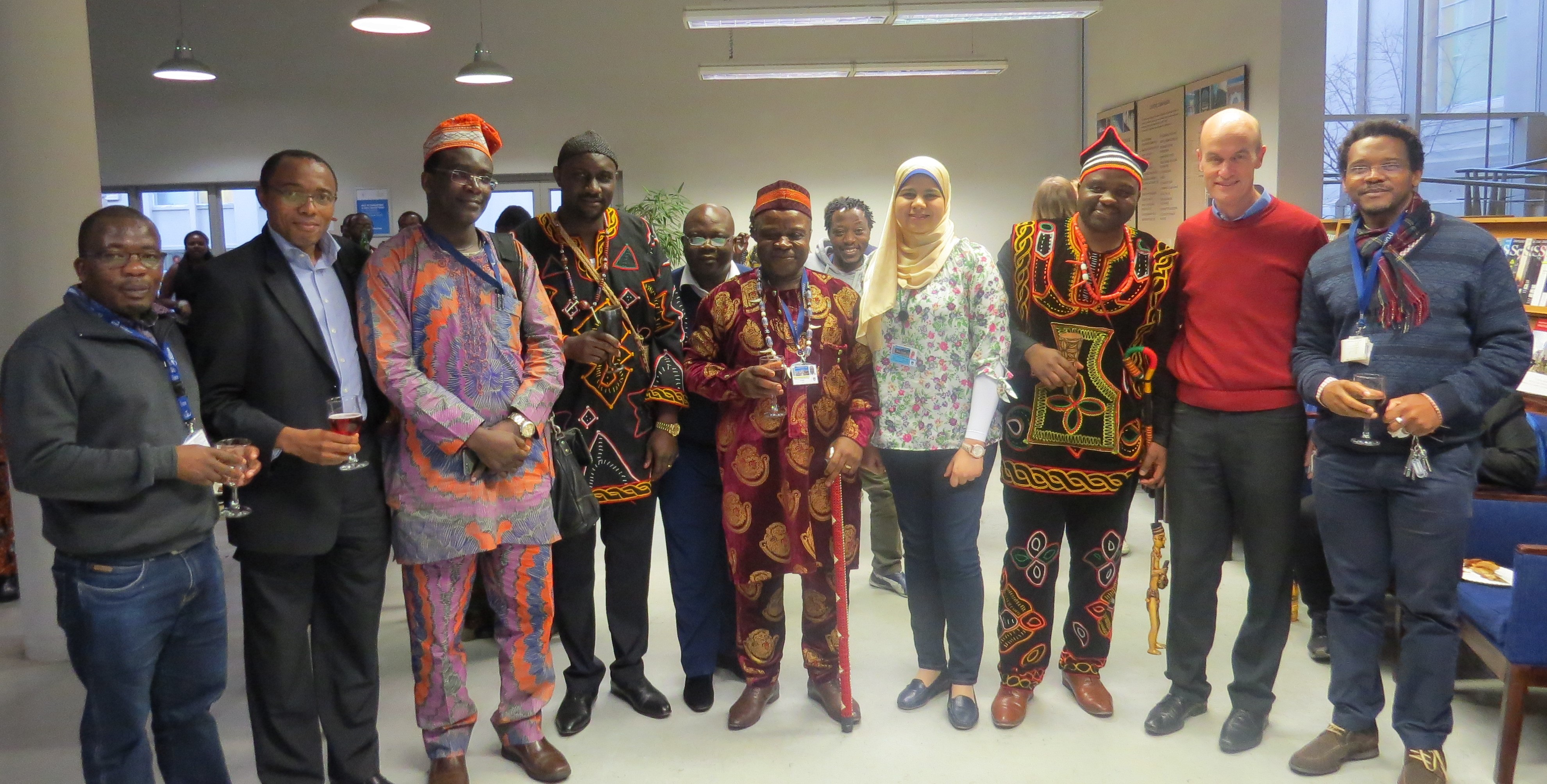Africa Day: Collaboration key for research on the continent
Researchers on the continent are facing the kinds of struggles that become predictable in under-resourced institutions. This was one of the topics addressed at this month’s Africa Day Mini-Symposium held at the Institute of Infectious Disease and Molecular Medicine (IDM). The Institute is based within the Faculty of Health Sciences (FHS), at the University of Cape Town (UCT).
The Mini-Symposium focused on the opportunities and challenges in capacity-development experienced by researchers on the continent. At the launch, co-organiser Dr Muki Shey, who studied at the University of Yaoundé I in Cameroon, detailed the challenges students experienced with the absence of proper laboratory infrastructure. When he moved to South Africa several years ago for his postgraduate studies he didn’t recognise most of the equipment in the labs, “I’d never seen or used a pipette aid before. And now I’m a Wellcome Intermediate Fellow.” Recognising not only the limited exposure that his education presented him with – but also the growth of his trajectory, Shey says he wants to: “Change the future and be part of creating a well-resourced environment. My children should have access to resources whether they are in Cameroon or anywhere else.”
Co-organiser Dr Elvis Kidzeru, a Dermatology postdoctoral fellow at UCT shared that when he was at the University of Buea in Cameroon there was pressure to perform well while working under particularly limited resources. The availability of better infrastructure and mentorship in South Africa enabled him to successfully complete his doctoral studies.

Africa Day Mini-Symposium organisers Drs Elvis
Kidzeru and Muki Shey

In her introductory talk – Capacity Building at the IDM, Director, Professor Valerie Mizrahi (Zimbabwe) said, “We are grounded in Africa. We work for Africa. If our work has global impact – that’s a bonus.” She highlighted the IDM’s collaborative footprint on the continent which includes 18 other institutions from the north (Tunisia), to the south (South Africa), to the east (Kenya), to the west (Senegal). This, in addition to collaborations with multiple research consortia.
The Institute’s vision is to be an international centre of excellence where world-class scientists work together to tackle diseases of major importance in Africa. Mizrahi stated that: “The big challenge is training and supporting people here so that they can return home to capacitate the institutions and communities they care about.”
Throughout the course of the programme researchers spoke of the work they’ve done across the continent – and the learnings they’ve garnered from this work. One of the speakers, Mr Julius Chia (Cameroon), echoed Mizrahi’s sentiment adding that amongst the technical problems resource-limited institutions face, there is also the issue that: “In Africa we’re not telling our own stories. These dynamics have to change, and we need to speak more intentionally about going back home.”
Post-Doctoral Researcher Dr Nada Abdel Aziz (Egypt) in Pathology says the work she’s doing fundamentally goes back to serving her people. “Many people in Egypt are waiting for us to alleviate their pain.”
It is important for scientific research to have the space it needs, like a lab, for the work to be done. In addition: “infrastructure like equipment and human resources to do the actual work” are also important. Aziz highlighted that there is an issue of not having enough well-trained people who can be responsible for the equipment or who can do the physical work that is required. One of the hindrances she raised had to do with the funders. “There is no sense of how a core facility should work. Funding is meant to move the science forward not to pay for millions worth of equipment to be put on shelves.”
Professor Charles Wiysonge (Cameroon), Director at Cochrane South Africa, introduced a different idea about how resources like money and energy can be used. He recommended that they be focused on synthesising the work that’s already been done to see which direction energies should be geared in. Wiysonge highlighted this as being particularly necessary since not much money is put into this space.
One of the keynote speakers, Professor Andre Pascal Kengne (Cameroon), is the Director of the Non-Communicable Diseases Research Unit at the South African Medical Research Council. He says that treating non-communicable diseases (NCDs) is particularly difficult for people in rural areas where access to healthcare is under-resourced. He referred to a study conducted in Cameroon between 1997 – 2005 which included findings that listed; “low awareness, poverty, limited staff and access to training, ill-equipped facilities and poor organisation of the health system” as contributing inhibitors to conducting research on the continent.
“Collaboration is very important. We should focus on the issues that matter to South Africa and Africa at large. We should be at the forefront of research efforts.”
From Zimbabwe, Pharmacogenetics Professor Collet Dandara, of the Drug and Metabolism and Cancer Research Group attributes the diversity of African populations to ethnicity – versus race. Stating that: “Race is a social construct.” Dandara defines the Pharmacogenetic Diversity of African populations as taking a “look at how inherited genetics affect how medicine affects us.”
He too highlighted collaboration, as well as interacting with the society one is studying, as important. Saying collaboration has been very helpful in aiding the group in achieving its different research area goals.
“Competitive-collaboration recognises that we have different research areas but where they interact we should collaborate. Speaking to this – Dandara made an example of the work of one of his former post-doctoral fellows who is investigating the interaction between herbal medicine and conventional drugs.
“Herbal medicines shouldn’t be stigmatised. And it’s important to note that the work that must be done with traditional healers is complicated. Especially as they have a history of their work being stolen from them. This way we can advise traditional healers about how the medicine they recommend reacts with the Western drugs… There is value in collaboration not only at UCT but nationally and regionally as well. I also encourage students to competitively collaborate with other students’ work when they require their particular area of expertise.”

Africa Day Mini-Symposium speakers connect aover jazz after delivering their talks
Speakers included; Professor Tunde Ojumu (Nigeria) of chemical engineering at Cape Peninsula University of Technology, and the IDM’s Drs Benjamin Kagina (Kenya), Elisa Nemes (Italy), Professor Graeme Meintjes (South Africa), and Professor Ambroise Wonkam (Cameroon) who delivered the second keynote address. They tackled different challenges of working on the continent but collaboration was recognised as an important and effective way forward.
